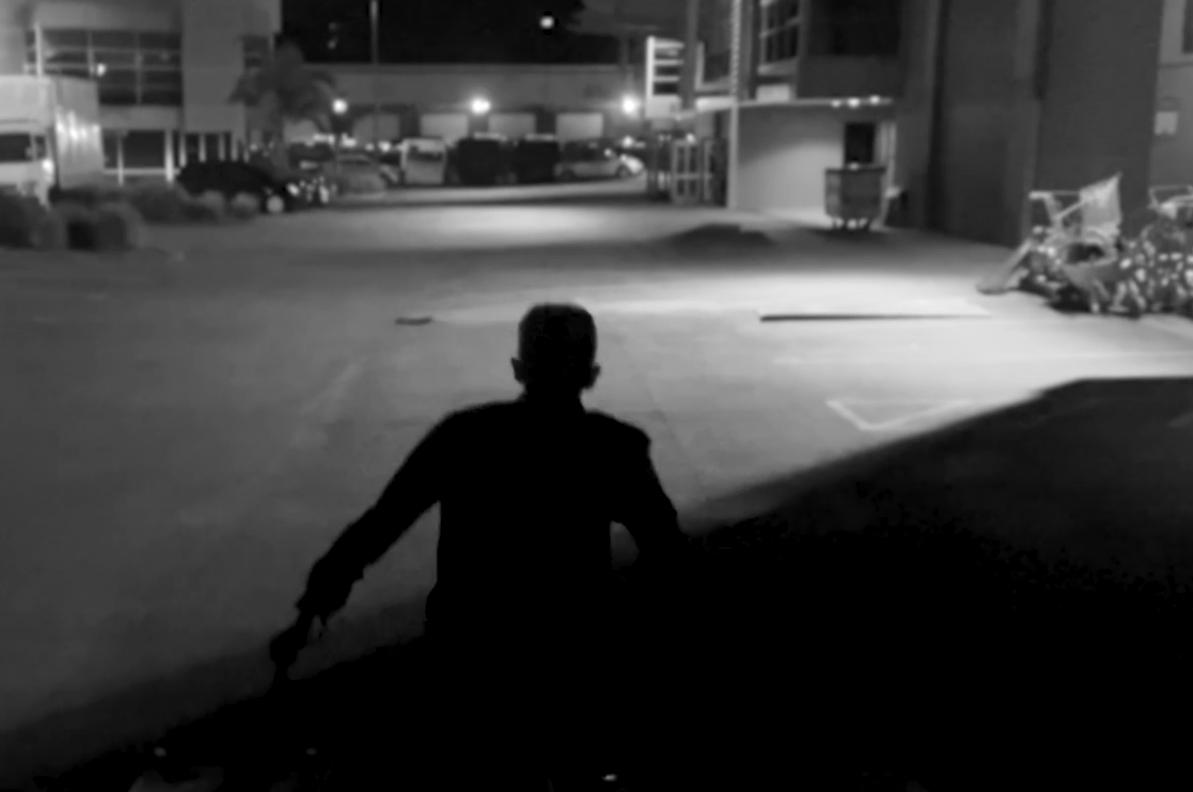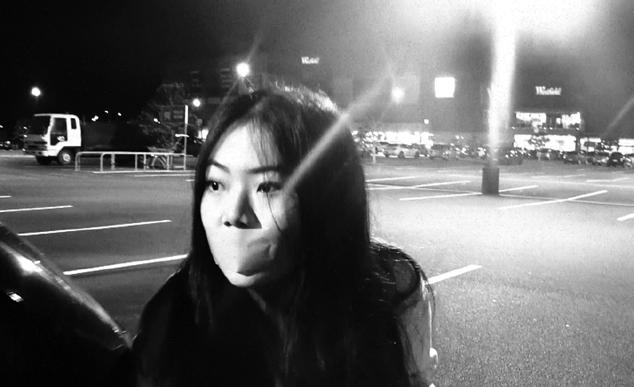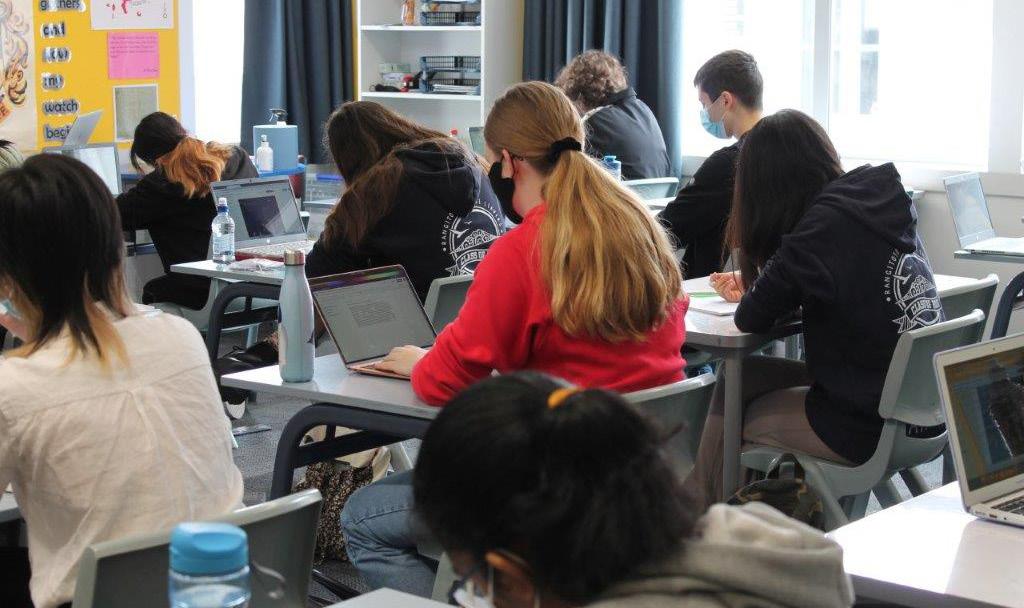
8 minute read
English
by Benefitz

“Literature is where I go to explore the highest and lowest places in human society and in the human spirit, where I hope to find not absolute truth but the truth of the tale, of the imagination and of the heart.” – Salman Rushdie
Two of the central pillars of the English Department at Rangitoto College are the study of language and the study of literature. These two things go hand in hand: we want our students to read some of the great works of literature from both New Zealand and the world, and we want them to have the vocabulary and facility with language to be able to do it. Literature is the golden ticket in the chocolate bar that allows us to cross the boundaries of time and space. Through books, we get a view of life from the perspectives of people very different from ourselves in all the categories of human society: age, society, race, gender, religion, class. Reading books helps us understand and empathise with other people and gives us insight into their lives. It also helps us reflect on our own society, to be critical, and to consider what kind of world we want to live in.
We live in a time when many schools are dismantling their libraries and removing novels and Shakespeare—anything that challenges students’ reading abilities—from the curriculum. At Rangitoto College, on the other hand, we have the privilege of a truly beautiful library, well-stocked with books for every reading level and interest, fiction and nonfiction. The English Department is able to take full advantage of the library, including the use of the Reading Rooms, and we intentionally invest time and energy into promoting reading both for pleasure and for intellectual development. We see true literacy as something far beyond the simple ability to read and write; true literacy is the ability to read and interpret complex books, plays and poetry, and to be able to discuss and write about them in an academic setting. To achieve this, students need to read, read widely, and read as much as they can.
On the subject of books, it has been a great pleasure for us to have seen the publication of the first two novels written by Chloe Gong, a past Rangitoto College student. Chloe’s books, set in 1920s Shanghai, are exciting and beautifully written, taking their titles from a quotation from Shakespeare’s Romeo and Juliet. Her first book, These Violent Delights, came out at the end of last year and the sequel, Our Violent Ends, was released this year. Chloe, who recently graduated from the University of Pennsylvania, is now a New York Times bestselling author. Congratulations, Chloe, we are massively proud of you and will follow your career with much interest!

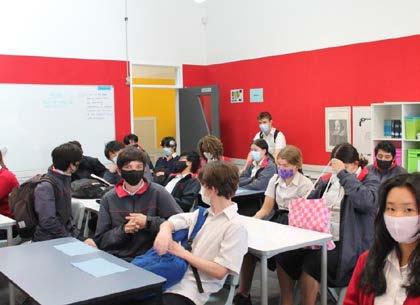


We hope that current students can take inspiration from Chloe’s success. We offer a number of clubs in the department for students who are interested in writing, including a Creative Writing Club, a Spoken Word Club, and a Journalism Club. We also have an online publication run by the English Department called Slings and Arrows which publishes excellent writing by students at all levels at the college.
The English Department staff saw some changes at the end of last year with two people, Cameron Lacey and Zoe Rogers, leaving to go into Assistant Head of Department positions at other schools, and another, Jessica Lane, moving into a Head of Department position. We are always sad to see people go, but we wish them all the best as they move on in their careers. We also welcomed several new people into the Department. Two first year teachers, Carmelita Maletino and Ye Sul Kim, joined us and are proving to be worth their weight in gold, bringing much enthusiasm and passion for the craft of teaching.
We are also very lucky to have Jess Kitt join our staff. Jess, who has been teaching in Australia for some years and who has now returned to New Zealand, has taken on the role of Curriculum Leader for Year 11 English. We are also delighted to welcome Rebecca Jessup, who returned to New Zealand after teaching the International Baccalaureate programme at an all-boys school in Hong Kong for ten years and who brings a wealth of knowledge about the IB English programme. In Term 3, Erin Atchison joined the Department, picking up classes from Sally Taylor who went on maternity leave to await the birth of Penelope. Congratulations, Sally, and welcome to the department, Erin. Erin has a PhD from the University of Edinburgh and has a huge knowledge base about literature, including New Zealand literature. We are so pleased to have Erin as part of the whānau.
Many thanks to our wonderful administrator, Kathy Pillbrow, for all her hard work in the Resource Centre. She is kind and helpful to both staff and students, doing everything with positivity and good humour. And a final thank you to the people who keep E-block humming: the extraordinary teachers. As ever, in 2021, they have gone above and beyond the call of duty, teaching in classrooms, online, giving up many hours of their time to ensure that students can be their best academic selves. Enjoy a well-deserved and relaxing summer break. Ka kite.

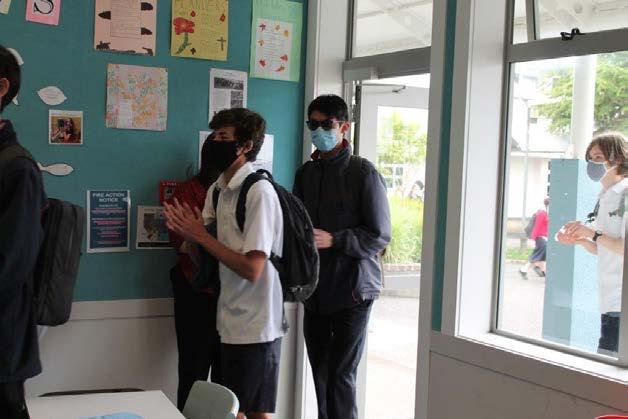
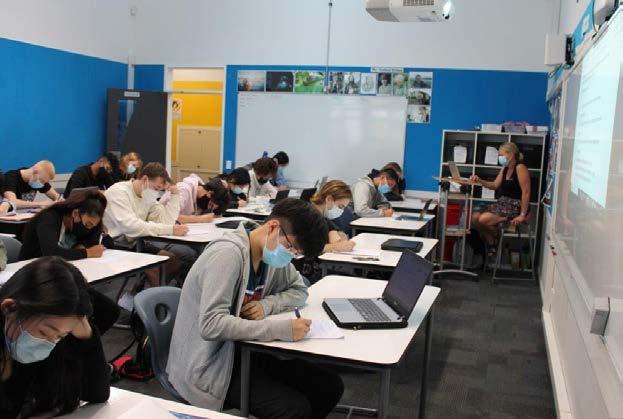

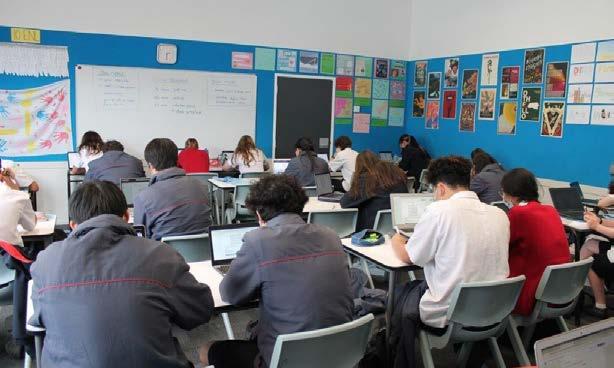
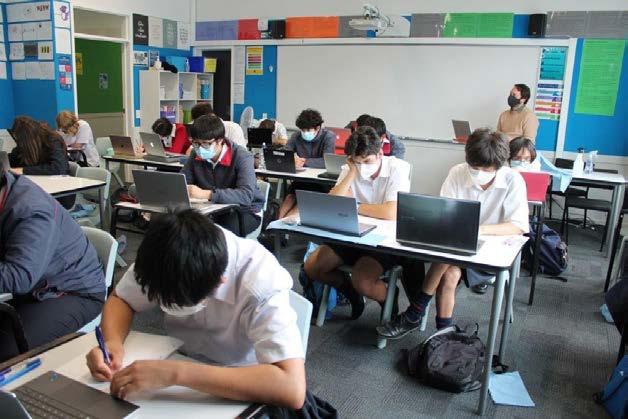
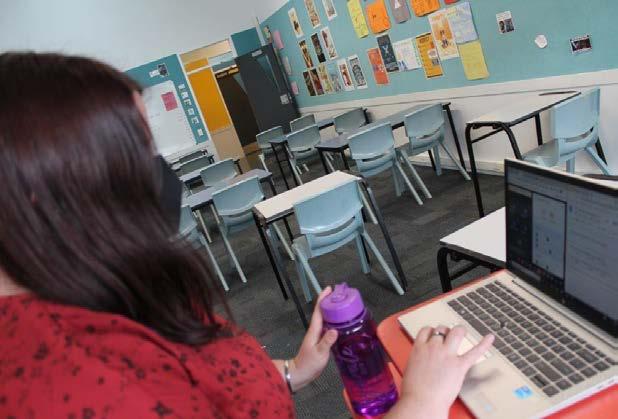
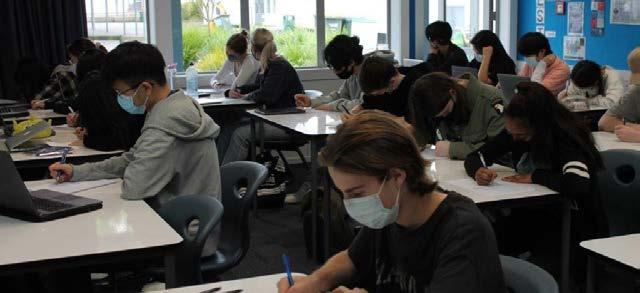

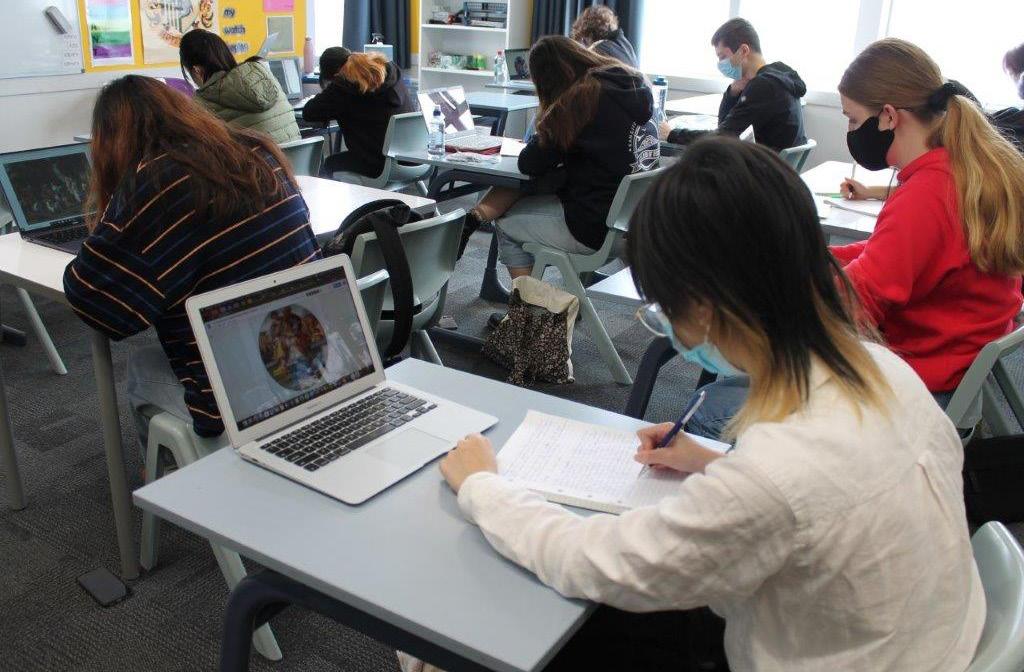
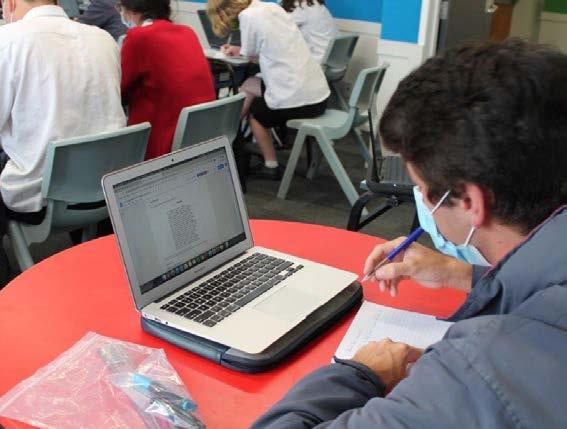
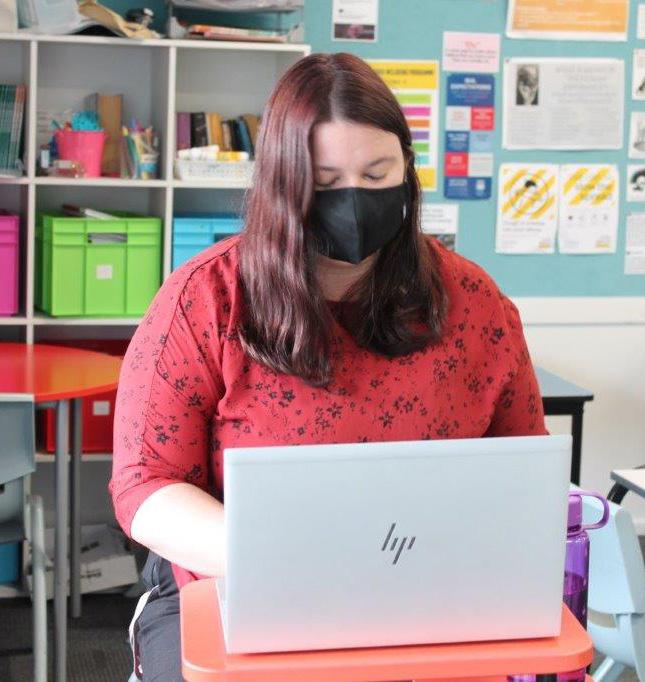


Media Studies

2021 served as a reminder that the media is a mirror into our world, sometimes wonderful, and sometimes unnerving. The storming of the Capital in the U.S. and the fall of Afghanistan to the Taliban provided some of the darker media moments of 2021, alongside the levity of Tik Tok and Bean Dad. Meanwhile, Bezos and Branson’s flights into space and Kanye’s release of his album Donda were some of the years ‘spectacles’. However, rising above it all, the Olympics and Paralympics provided a wonderful moment of shared experience around the globe, a moment that celebrated humanity, something many of us perhaps needed after what was an incredibly tough 2020.
We had a bumper Year 13 this year with a total of four classes. This was a massive undertaking, particularly when it came to their film production. In total, our Year 13 students produced 36 short films over the course of just eight weeks. This was a production schedule that relied heavily on the guidance of their teachers to help groups through. Quite a few students had never taken the subject before, but they all rose to the challenge and produced some great film noir sequences. It’s always great seeing suburban North Shore streets and locations turned into the backdrop for dark crime stories about doomed heroes. However, the most enjoyable part of Year 13 film production is what the students bring to it and seeing them create great dramatic action scenes.
Term 3 in the department is usually a time for running through halls from monsters and cautiously walking through darkened hallways. Unfortunately, the lockdown period hit our Year 12 at the worst possible time. Only a few weeks into their production with their horror sequences, the students had to put a hold on their films and wait until we could return to school. With all the shutdowns of film productions around the world in 2020, it did feel, with great irony, we were giving them an unfortunate ‘real world experience’ of the modern filming environment. At the time of writing, we still have no idea about the eventual outcome for our Year 12 production. However, I am sure that they put the knowledge that their research into the horror genre taught them into practice: horror doesn’t die, it just adapts!
Luckily, lockdown did not hinder the Year 11 production and the students were able to have a normal experience. This year, our students had fun creating their own crime drama opening sequences, learning to build tension, jump scares and suspense. It is always great seeing students discover their own talent and learn the craft of filmmaking. Outside of production, the Year 11s also explored the shifting landscape of modern media consumption and the questionable taste, at times, and power of reality TV. We want students to build a critical eye towards the media, an increasingly necessary skill in the modern world!
